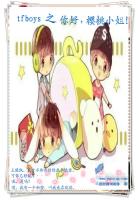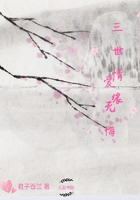In the cool blue twilight of two steep streets in Camden Town, the shop at the corner, a confectioner's, glowed like the butt of a cigar. One should rather say, perhaps, like the butt of a firework, for the light was of many colours and some complexity, broken up by many mirrors and dancing on many gilt and gaily-coloured cakes and sweetmeats. Against this one fiery glass were glued the noses of many gutter-snipes, for the chocolates were all wrapped in those red and gold and green metallic colours which are almost better than chocolate itself; and the huge white wedding-cake in the window was somehow at once remote and satisfying, just as if the whole North Pole were good to eat. Such rainbow provocations could naturally collect the youth of the neighbourhood up to the ages of ten or twelve. But this corner was also attractive to youth at a later stage; and a young man, not less than twenty-four, was staring into the same shop window. To him, also, the shop was of fiery charm, but this attraction was not wholly to be explained by chocolates; which, however, he was far from despising.
He was a tall, burly, red-haired young man, with a resolute face but a listless manner. He carried under his arm a flat, grey portfolio of black-and-white sketches, which he had sold with more or less success to publishers ever since his uncle (who was an admiral) had disinherited him for Socialism, because of a lecture which he had delivered against that economic theory. His name was John Turnbull Angus.
Entering at last, he walked through the confectioner's shop to the back room, which was a sort of pastry-cook restaurant, merely raising his hat to the young lady who was serving there. She was a dark, elegant, alert girl in black, with a high colour and very quick, dark eyes; and after the ordinary interval she followed him into the inner room to take his order.
His order was evidently a usual one. "I want, please," he said with precision, "one halfpenny bun and a small cup of black coffee." An instant before the girl could turn away he added, "Also, I want you to marry me."The young lady of the shop stiffened suddenly and said, "Those are jokes I don't allow."The red-haired young man lifted grey eyes of an unexpected gravity.
"Really and truly," he said, "it's as serious--as serious as the halfpenny bun. It is expensive, like the bun; one pays for it. It is indigestible, like the bun. It hurts."The dark young lady had never taken her dark eyes off him, but seemed to be studying him with almost tragic exactitude. At the end of her scrutiny she had something like the shadow of a smile, and she sat down in a chair.
"Don't you think," observed Angus, absently, "that it's rather cruel to eat these halfpenny buns? They might grow up into penny buns. I shall give up these brutal sports when we are married."The dark young lady rose from her chair and walked to the window, evidently in a state of strong but not unsympathetic cogitation. When at last she swung round again with an air of resolution she was bewildered to observe that the young man was carefully laying out on the table various objects from the shop-window. They included a pyramid of highly coloured sweets, several plates of sandwiches, and the two decanters containing that mysterious port and sherry which are peculiar to pastry-cooks.
In the middle of this neat arrangement he had carefully let down the enormous load of white sugared cake which had been the huge ornament of the window.
"What on earth are you doing?" she asked.
"Duty, my dear Laura," he began.
"Oh, for the Lord's sake, stop a minute," she cried, "and don't talk to me in that way. I mean, what is all that?""A ceremonial meal, Miss Hope."
"And what is that?" she asked impatiently, pointing to the mountain of sugar.
"The wedding-cake, Mrs. Angus," he said.
The girl marched to that article, removed it with some clatter, and put it back in the shop window; she then returned, and, putting her elegant elbows on the table, regarded the young man not unfavourably but with considerable exasperation.
"You don't give me any time to think," she said.
"I'm not such a fool," he answered; "that's my Christian humility."She was still looking at him; but she had grown considerably graver behind the smile.















